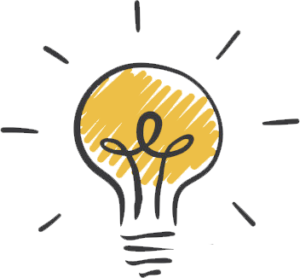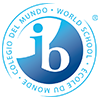Pre Primary
Academics : Pre-Primary
The Primary Years Program
The Primary Years Program for Parents:
What will my child learn during a Unit of Inquiry (UOI)?
A UOI is designed around 5 essential elements. Students in kindergarten explore 4 UOIs yearly and primary students explore all 6 UOIs. Refer to your child’s grade level written curriculum document for more details on learning outcomes.
What are these 5 elements?

1. KNOWLEDGE
Who We Are
An inquiry into the nature of the self; beliefs and values; personal, physical, mental, social and spiritual health; human relationships including families, friends, communities, and cultures; rights and responsibilities; what it means to be human.
Where We Are in Place and Time
An inquiry into orientation in place and time; personal histories; homes and journeys; the discoveries, explorations and migrations of humankind; the relationships between and the interconnectedness of individuals and civilizations, from local and global perspectives.
How We Express Ourselves
An inquiry into the ways in which we discover and express ideas, feelings, nature, culture, beliefs and values; the ways in which we reflect on, extend and enjoy our creativity; our appreciation of the aesthetic..
How the World Works
An inquiry into the natural world and its laws; the interaction between the natural world (physical and biological) and human societies; how humans use their understanding of scientific principles; the impact of scientific and technological advances on society and on the environment.
How We Organize Ourselves
An inquiry into the interconnectedness of human-made systems and communities; the structure and function of organizations; societal decision-making and their impact on humankind and the environment.
Sharing the Planet
An inquiry into rights and responsibilities in the struggle to share finite resources with other people and with other living things; communities and the relationships within and between them; access to equal opportunities; peace and conflict resolution.

2. CONCEPTS

3. SKILLS
Here are 5 sets of transdisciplinary skills that students develop through authentic learning experiences of structured inquiry. These skills found the basis for a student’s approach to learning (ATL) as each set of skills can be applied across various disciplines over the course of a lifetime.
Thinking skills
- Acquisition of knowledge
- Comprehension
- Application
- Analysis
- Synthesis
- Evaluation
- Dialectical thought Metacognition
Social skills
- Accepting responsibility
- Respecting others
- Cooperating
- Resolving conflict
- Group decision-making
- Adopting a variety of group roles
Communication skills
- Listening
- Speaking
- Reading
- Writing
- Viewing
- Presenting
- Non-verbal communication
Self-management skills
- Gross motor skills
- Fine motor skills
- Spatial
- awareness
- Organization
- Time management
- Safety
- Healthy lifestyle
- Codes of behavior
- Informed choices
Research skills
- Formulating questions
- Observing
- Planning
- Collecting data
- Recording data
- Organizing data
- Interpreting data
- Presenting research findings

4. ATTITUDES
- Appreciation
- Empathy
- Commitment
- Enthusiasm
- Confidence
- Independence
- Cooperation
- Integrity
- Respect
- Tolerance
- Curiosity
- Creativity

5. ACTION
Action is an extension of learning beyond the intellectual into thoughtful and appropriate action based on previous learning. Action can extend the student learning or it may have wider social impacts. Action looks different in different age groups. For example, 3 year old students may confidently tell parents that they can feed themselves; students in upper primary may try to initiate a more comprehensive waste reduction program in the home or wider community based on their understanding of local ordinances and materials.



